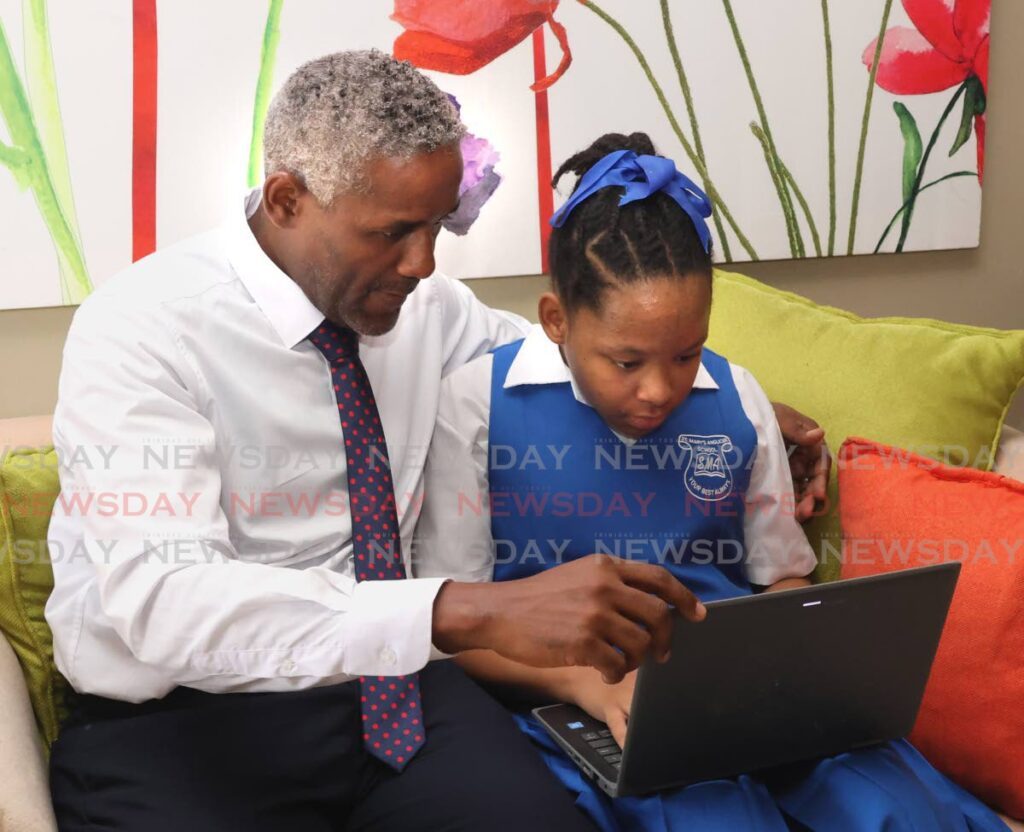Denominational boards report ‘phenomenal’ SEA results

DENOMINATIONAL school boards are reporting ‘phenomenal’ preliminary results from the Secondary Entrance Assessment (SEA) examination which were released overnight, online.
This in spite of a small decline in the English Language Arts score announced by Education Minister Dr Nyan Gadsby-Dolly in a June 27 release.
There was a fall from 61.6 per cent in 2023 to 53.5 per cent in 2024.
Gadsby-Dolly told the Newsday via WhatsApp on June 28, that in the coming days, the Ministry of Education would analyse the exact areas which were of difficulty.
“That will identify what areas need particular focus. This is important to assist teachers in meeting the needs of the students,” she said.
A total of 18,177 students wrote the 2024 SEA exams.
General Secretary of the Maha Sabha Vijay Maharaj said he was extremely happy with the results, especially in the “hot-spot” area of Enterprise where the Lendore Hindu School is located.
He told the Newsday that of the 1,668 students from 43 Maha Sabha primary schools who sat the exams, there was a pass rate of 97 per cent for five- and seven-year schools.
“The results were better than last year. As a matter of fact, I have a number of children who got 257 and 258 marks, which might be among the highest scores in the country. I also have students who scored 100 per cent in mathematics, English language arts writing and English language arts.
“Even schools I thought would not have done well, they have excelled. When you look at a school like Lendore Hindu, which is in Enterprise and has a 99 per cent enrollment of Afro-Trinidadian students, the result was phenomenal.
“Fourteen of the 44 students who wrote exams from this school, passed for seven-year schools and 28 for five-year schools. Two would have to re-sit the exam.
“Similarly, at Don Miguel Hindu, Barataria, of the 35 students who wrote, 33 passed for seven-year schools and two for five-year (schools).
“That is the kind of results you get when you have parental involvement. It has nothing to do with being a prestige or non-prestige school. It has to do with family support.
“When you get those kinds of results, you must want to beat your chest, but I don’t have to do that. I know what we are doing, and the manner in which we are doing it is correct.”
Catholic School Board CEO Sharon Mungroo said, based on preliminary reports, principals from their 118 primary schools were generally quite happy with the results.
“We have seen very few re-sits and few remedial recommendations, which means that the children have performed well. One school in particular, Maracas RC is ecstatic as for the first time, three of its students have been placed at CIC.
“The principal there has been doing a systematic implementation of something called the quality assurance system. You were seeing the results before, but I think she is now seeing the results in the exams.”
Mungroo, however, expressed surprise that the results were better in mathematics than in English language.
She believes that may be consistent with the lockdown during the pandemic when teaching and communicating were mainly done online.
“We would have to look and see if there is an association with the time students spent not being able to physically socialise, and the use of abbreviations to communicate that might have affected their English language.”
Mungroo said they met with Gasby-Dolly at a stakeholders meeting on Friday morning and she promised the ministry would be sending an analysis of the results to the board so they could do the comparison with previous years.
She said the minister also promised to share the results of the Trinidad and Tobago National Learning Assessment test which evaluates standard-one and standard-three students to pick up any deficiency at an early age and treat with it.
Ahamad Hosein, president of ASJA, which manages seven primary schools said from initial reports, “the result was overwhelming. We are expecting our students to be among those in the top-ten spots.”
Presbyterian Primary School Board chairman Vickram Ramlal said their assessment of students’ performance was not merely how many passed for five- and seven-year schools.
“We assess in terms of how the students performed in each subject area. We need to know how many who wrote mathematics or English language, made 50 per cent or less,
“The minister spoke about a decline in language arts, we don’t have that data as yet to see how it affected us.
“What we would like to say is that we ar pleased how our schools are managing the ministry’s cultural transformation though education. Many of the activities that make up the primary school life that were stopped because of the pandemic – sports day, career day, Spanish-speaking day, non-violence day – we have started back. “

Comments
"Denominational boards report ‘phenomenal’ SEA results"